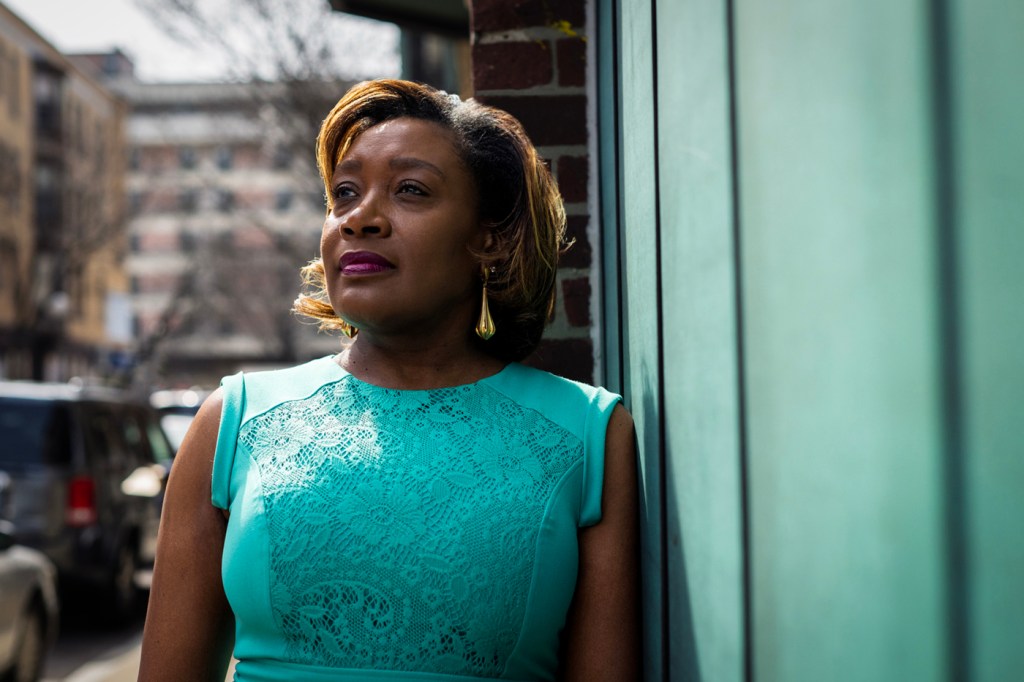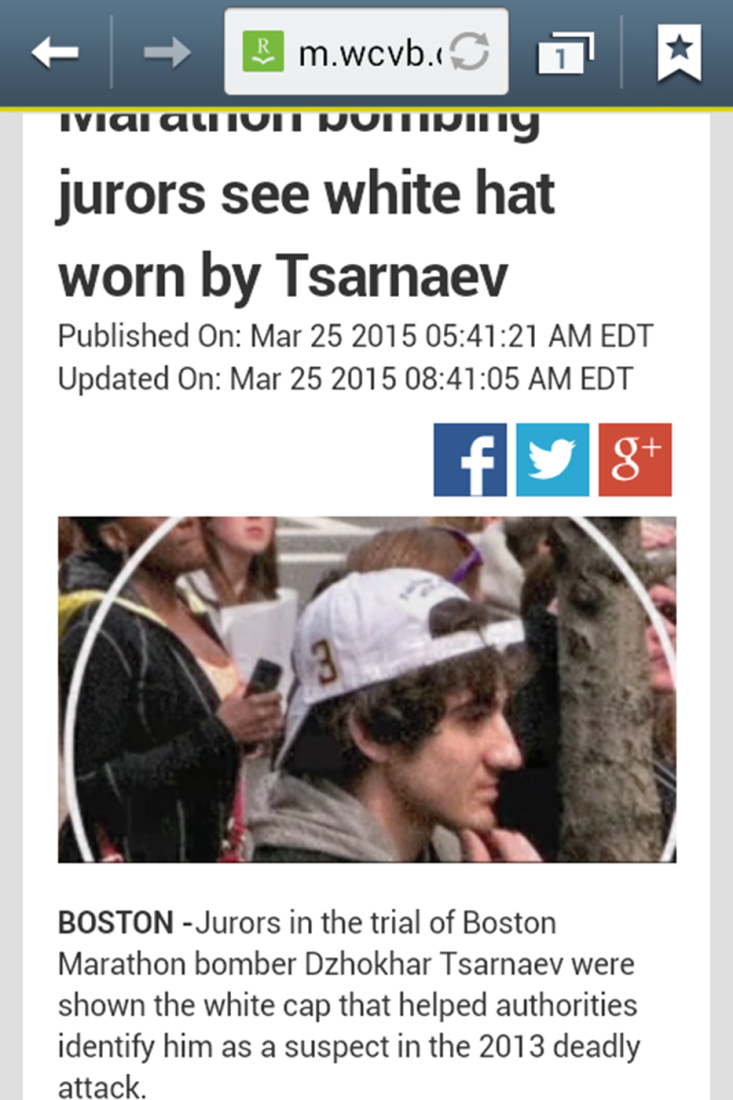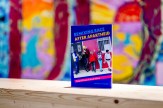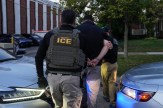‘Cherish every day like it’s your last.’ Standing a few feet away from the second Boston Marathon bomb, Audrey Evans feels lucky to be alive

Audrey Evans was standing with friends on Boylston Street in front of Atlantic Fish Co. on April 15, 2013, a few steps away from the finish line waiting for a friend to complete her first Boston Marathon when she heard an explosion.
“Oh my God. Something blew up. Something blew up. Oh my God,” Evans can be heard shouting on a video recorded by a friend.
Then a second, louder boom, and the air around her was filled with dust and debris.
Evans was knocked to the ground as chaos erupted.

She had planted her feet on the lower horizontal bar of the railed barricade along the marathon route to get a better view to capture photos of her friend. But as the explosions echoed along Boylston Street and people hurriedly fled the scene, the barricade was pushed to the ground, taking Evans down with it as her foot caught in the railing. She feared she might be crushed in the stampede. A friend tried to help her up but she was also knocked to the ground.
“People are just kind of running over us. And then, finally, we have no idea to this day, someone came and picked us up from behind, put us on our feet, and we just ran,” says Evans, who began working at Northeastern University two months prior to the bombing.
Evans had been standing only a few feet away from a pressure cooker bomb planted by Dzhokhar Tsarnaev. It was the second bomb to explode at the finish line. The first was placed by Tsarnaev’s older brother, Tamerlan, who was killed in a shootout with law enforcement four days after the bombing, which took the lives of three people and injured nearly 300 others.
When Dzhokhar Tsarnaev went on trial two years later, photos of the scene emerged. In several images, Evans is standing near a tree, and right next to her is Dzhokhar Tsarnaev with his white ball cap on backward. The photo was taken shortly before the second explosion.
“That wrecked me. It wrecked me,” Evans says. “I just cried. I just could not believe what I saw.”


“It blew my mind,” she continues. “It absolutely blew my mind because I just did not realize. It kind of brought everything back because I’m thinking, ‘Was he standing next to me when the young girl was on her father’s shoulders and was hitting me in the head with the tree branch?’ Because I remember laughing it off. And I said to the dad, ‘Oh, it’s OK. You know, it’s fine. I’m thinking he was standing there, you know, at the time when that was happening?”
The photos also show people who passed away in the bombing or were injured, and they had been standing very close to her. She still cries when she thinks about those who suffered.
“I had so much anger and I just couldn’t understand how two people could actually have this much hatred and do this, you know, to innocent people, and let alone children,” she says.
“It was disheartening,” Evans says. “I tried to get my thoughts around it. How people are and the way they think and everything was just so confusing. I never thought I’d be in a position to have to run for my life. Really run for my life.”
Evans says she still can’t help but wonder what would have happened if Dzhokhar Tsarnaev had left the backpack right there next to the tree.
“I’m lucky in a way and I’m thankful, but I still get sad when I think about it because, you know, it was just pure luck and I guess God’s grace. It wasn’t my time, but I still feel very sorry for the mother of the two children, one who was injured and the other who would pass, and then the other individuals’ parents and relatives who passed,” she says.
She also wonders what Dzhokhar Tsarnaev must have been thinking when he was standing so close to her. She believes he must have decided to walk behind her group, and place the bomb to her left, by the mailbox, in front of the Forum restaurant because there was an outdoor party on the patio there with many people.
Evans and her friends ran down Boylston Street after the bombing, and found their friend who was running the marathon. They regrouped and headed to her apartment, along with many others she met escaping the bombing scene. Meanwhile, a cousin on the Boston Police Department who knew she was at the finish line had called to check on her. After she told him there were many people at her place who had photos and videos from the finish line, police brought them all to the station to download the images to be used in the investigation.
Evans was devastated by the bombing. She felt guilty about running away. She felt guilty that she had survived while others passed away or were injured. Discussing the event still brings tears to her eyes.
Evans says she is grateful for the Northeastern employee assistance program, which helped her connect with a therapist and obtain other services.
“The program that Northeastern offered essentially saved me. It taught me how to deal with post-traumatic stress disorder, survivor’s guilt, because me and the rest of my friends, we all wondered why, why was it that we survived? Why were we not injured?” says Evans, project manager for administrative services in the Office of the General Counsel at Northeastern.
“People go through this whole thing of feeling guilty because they didn’t do more. And we all went through it, why didn’t we stay? My instinct should have been like, I should have been helping people. But I did the natural thing.”
Evans and her friends decided they wanted to do something to help others affected by the bombing. So they started an organization called Fairing Better, Legs for Life. The organization has raised money for at least six prosthetic fairings for victims of the bombing.
The tragedy has had a profound effect on Evans and how she approaches life.
“Cherish every day like it’s your last and if your life depended on it, because there may come a time when it actually does,” she says.
“Life is too short and you have to be kind and gentle and empathetic. It could have been a lot worse for me. He [Dzhokhar Tsarnaev] could’ve decided that where he put that backpack would’ve been right next to me. It could easily have been right next to me. It brought things into perspective for me about how short life can be.”
Mark Conti is managing editor of Northeastern Global News. Follow him on Twitter @markconti11






